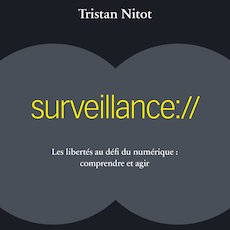Asa recently mentionned a PC World article listing The 25 Worst Tech Products of All Time. Some of these products are just terrible ideas or badly implemented good ideas (unreliable hardware, terrible User Interface...). But for some of the products listed, there may be a trend waiting to be unveiled. Let's have a look at some of them:
- Ranked #1 is AOL. This is a hard product to start with. First, I'm a former employee of AOL (even though I joined when Netscape was acquired, not by choosing AOL as an employer). AOL has done great things (a large-scale BBS in 1989 was pretty cool, and financially sustaining Mozilla for several years was great), its walled garden approach while the Web was taking off was really a terrible idea. In the case of AOL, the Web was decidedly a disruptive technology, and the company did not adapt to this new model, trying to lure new customers and prevent the existing one to get what they really wanted: the Web.
- Ranked #2 is RealNetworks RealPlayer, which has plagued my PC (and millions others) for years like a skin disease: once you have it, it's really hard to get rid of it. They have an excuse, though. As they were competing with a product embedded by default in Windows, they had to fight really hard to keep a relationship with the users. They did that so badly that coping with RealPlayer has been a nightmare for me while I still used a PC. I'll quote PCWorld on this: "To be fair, RealNetworks deserves credit for offering a free media player and for hanging in there against Microsoft's relentless onslaught. We appreciate the fact that there's an alternative to Windows Media Player; we just wish it were a better one." Indeed.
- Sony BMG Music CDs are #5 for their infamous rootkit, which has infected half a million PCs on purpose, just in order to track users and prevent them from doing copies. Everybody wants to listen to music, but not to the point of reducing security of their PC...
- Internet Explorer 6 is ranked #8. By sacrificing user security in favor of anything (ActiveX, anyone?) that could help "cut Netscape's air supply"), IE6 might be, as PCWorld puts it, "the least secure software on the planet". Having left IE6 without significant improvements over 5 years (other than Pop-up blocking) did not help either. Asa notes that Firefox has been named 'product of the year 2005' by PCWorld

- So-called "Free PCs" are ranked #23. Actually, you thought they were free, but you had to totally give up on your privacy and you had to watch for ads all over the screen. This is pretty close to the upcoming so-called inexpensive PC scam built on Microsoft's FlexGo technology, where you need to pay to use your PC per hour, otherwise it will lock up (I mean on purpose, not because of the infamous BSOD). Of course, as Microsoft mentions it in the FexGo FAQ, "the total cost of a computer bought under the pay-as-you-go computing model is higher than the cost of a computer purchased outright", which may be the most pressing issue for users will very small revenues, which are targeted for such products.
There may be a business lesson in these big failures. What I see here is a list of products that could have been good... if only the companies behind them did not try to have the users do things they did not want to do... a product that does just what it was meant to be.
- If IE6 was made to be the best browser (that includes protecting the user from attacks) instead of crushing Netscape, it would not have been listed here.
- If RealPlayer was just trying to be a good media player instead of trying to get attention from the users and prevent as much as it could to be uninstalled, people would just love it. (It's not to be forgotten that Microsoft made anti-economic decisions breaking the player market, forcing RealNetworks to have a crazy behavior, things would be much simpler for everybody).
- If Sony BMG had left its users make copies of their CDs for their private usage (a copy to be left in the car, another for the MP3 player), they would not have ended in these three class action suits.
- If AOL had listened to its customers, who wanted choice and openness instead of trying to force-feed them with a walled-garden approach filled with uninteresting content and exclusive-deals with partners, they would be in a much better shape than today.
If there is a lesson here, it may be summed up in a couple of words:
Do the best you can to serve your users. Controlling their experience in favor of bigger profits is a disservice you do to them... and eventually to your shareholders.





